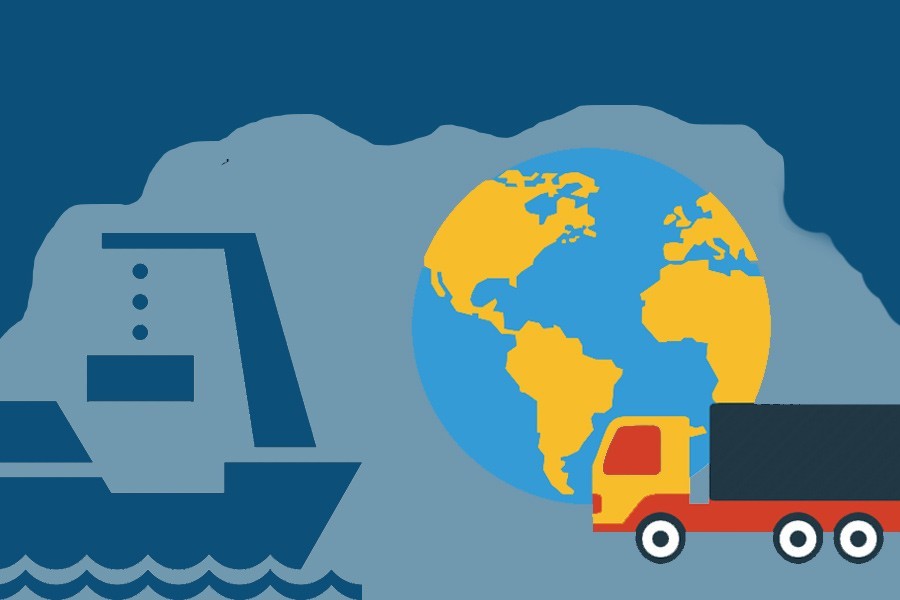Neighbouring India wants to inspect Bangladeshi factories before it imports goods under a regional free trade deal in what local exporters see it as a non-tariff barrier.
With Bangladesh's exports to India exceeding US$1.0 billion, New Delhi has attempted to impose a curb on the entry of Bangladeshi goods to its market, according to exporters and analysts.
In November 2011, India granted duty and quota-free market access to all but tobacco and alcohol under the South Asian Free Trade Area deal for the least developed country members of the South Asian Association for Regional Cooperation.
But Bangladesh's exports to India did not grow much despite the trade benefits and non-tariff and para-tariff barriers imposed by Delhi were seen as the binding constraint.
In contrast, Indian exports to Bangladesh grew to over $8.0 billion.
Under the SAFTA clauses, goods from poorer countries need 30 per cent value addition to be eligible for duty-free access to India.
Officials said India has recently claimed that Bangladesh is exporting edible oil to Indian states without proper value addition making it ineligible for enjoying duty-free benefit.
Trade officials said in this case, India is asking Bangladeshi exporters to furnish required bank guarantee, equivalent to applicable duty and taxes, to get goods released from the ports.
In May this year, the Indian high commission in Dhaka requested Bangladesh to check 24 sets of country of origin certificates of various goods under Rule 16 of Rules of Origin of the SAFTA.
"The competent authority in India informs that failing the receipt of a response from the Bangladesh side within the timeframe prescribed under the said Article 15, necessary action would be initiated based on available facts," the high commission said in a letter.
People familiar with the situation said recently for the first time, the Commission expressed its intention to conduct onsite visits of edible oil factories to check whether they meet the SAFTA requirements.
"The High Commission…convey the concurrence of the Bangladesh side and a set of dates for the proposed visit of a technical team from India to the manufacturing facilities of Bangladesh exporters of refined oil to ascertain if adequate value addition is taking place under the relevant provision of SAFTA," it said.
Trade officials in Dhaka said this is another type of barrier by India and in future it may follow the same procedure in case of exports of other goods.
"The creation of such new types of barriers will result in the drastic reduction in Bangladesh's export to India," a trade official said.
Research director of Centre for Policy Dialogue (CPD) Dr Khondaker Golam Moazzem told the FE the Delhi administration may have come up with the new measure after Indian entrepreneurs have raised the objection that Bangladeshi exporters are grabbing their shares.
He said the Indian economy is experiencing a slowdown and due to various new regulations local businesses are facing troubles.
"The increase in Bangladesh's exports to India caused a major concern for them," he said, adding India is trying to curtail the benefits offered to Bangladesh.
Dr Moazzem said in the past, they only forwarded certificate of origin documents and Bangladesh re-verified those.
"But now they want onsite visit, whose rationality is under question," he said. "It is totally an additional requirement," he added.
Former president of the Dhaka Chamber of Commerce and Industry Abul Kasem Khan told the FE India is a big trading partner of Bangladesh and the balance of trade is highly tilted to New Delhi.
Bangladesh's export to India is merely $1.0 billion, he said.
"If India creates new obstacles, our export to that country will fall and swell trade gap further," he said.
Mr Khan said the Indian investment and exports to Bangladesh are also rising every year.
"It should not create any further barrier to our exports taking the warm bilateral relations into consideration," he added.


